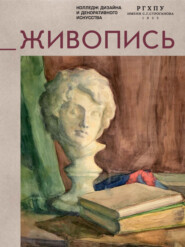По всем вопросам обращайтесь на: info@litportal.ru
(©) 2003-2025.
✖
The German Classics of the Nineteenth and Twentieth Centuries, Volume 02
Настройки чтения
Размер шрифта
Высота строк
Поля
"Well, then, the thing is easy enough," Edward answered.
He took a candle, and lighted the Count down a private staircase leading into a long gallery. At the end of this, he opened a small door. They mounted a winding flight of stairs, which brought them out upon a narrow landing-place; and then, putting the candle in the Count's hand, he pointed to a tapestried door on the right, which opened readily at the first trial, and admitted the Count, leaving Edward outside in the dark.
Another door on the left led into Charlotte's sleeping-room. He heard her voice, and listened. She was speaking to her maid. "Is Ottilie in bed?" she asked. "No," was the answer; "she is sitting writing in the room below." "You may light the night-lamp," said Charlotte; "I shall not want you any more. It is late. I can put out the candle, and do whatever I may want else myself."
It was a delight to Edward to hear that Ottilie was writing still. She is working for me, he thought triumphantly. Through the darkness, he fancied he could see her sitting all alone at her desk. He thought he would go to her, and see her; and how she would turn to receive him. He felt a longing, which he could not resist, to be near her once more. But, from where he was, there was no way to the apartments which she occupied. He now found himself immediately at his wife's door. A singular change of feeling came over him. He tried the handle, but the bolts were shot. He knocked gently. Charlotte did not hear him. She was walking rapidly up and down in the large dressing-room adjoining. She was repeating over and over what, since the Count's unexpected proposal, she had often enough had to say to herself. The Captain seemed to stand before her. At home, and everywhere, he had become her all in all. And now he was to go; and it was all to be desolate again. She repeated whatever wise things one can say to oneself; she even anticipated, as people so often do, the wretched comfort that time would come at last to her relief; and then she cursed the time which would have to pass before it could lighten her sufferings—she cursed the dead, cold time when they would be lightened. At last she burst into tears; they were the more welcome, since tears with her were rare. She flung herself on the sofa, and gave herself up unreservedly to her sufferings. Edward, meanwhile, could not take himself from the door. He knocked again; and a third time rather louder; so that Charlotte, in the stillness of the night, distinctly heard it, and started up in fright. Her first thought was—it can only be, it must be, the Captain; her second, that it was impossible. She thought she must have been deceived. But surely she had heard it; and she wished, and she feared to have heard it. She went into her sleeping-room, and walked lightly up to the bolted tapestry-door. She blamed herself for her fears. "Possibly it may be the Baroness wanting something," she said to herself; and she called out quietly and calmly, "Is anybody there?" A light voice answered, "It is I." "Who?" returned Charlotte, not being able to make out the voice. She thought she saw the Captain's figure standing at the door. In a rather louder tone, she heard the word "Edward!" She drew back the bolt, and her husband stood before her. He greeted her with some light jest. She was unable to reply in the same tone. He complicated the mysterious visit by his mysterious explanation of it.
"Well, then," he said at last, "I will confess, the real reason why I am come is, that I have made a vow to kiss your shoe this evening."
"It is long since you thought of such a thing as that," said Charlotte.
"So much the worse," he answered; "and so much the better."
She had thrown herself back in an armchair, to prevent him from seeing the slightness of her dress. He flung himself down before her, and she could not prevent him from giving her shoe a kiss. And when the shoe came off in his hand, he caught her foot and pressed it tenderly against his breast.
Charlotte was one of those women who, being of naturally calm temperaments, continue in marriage, without any purpose or any effort, the air and character of lovers. She was never expressive toward her husband; generally, indeed, she rather shrank from any warm demonstration on his part. It was not that she was cold, or at all hard and repulsive, but she remained always like a loving bride, who draws back with a kind of shyness even from what is permitted. And so Edward found her this evening, in a double sense. How sorely did she not long that her husband would go; the figure of his friend seemed to hover in the air and reproach her. But what should have had the effect of driving Edward away only attracted him the more. There were visible traces of emotion about her. She had been crying; and tears, which with weak persons detract from their graces, add immeasurably to the attractiveness of those whom we know commonly as strong and self-possessed.
Edward was so agreeable, so gentle, so pressing; he begged to be allowed to stay with her. He did not demand it, but half in fun, half in earnest, he tried to persuade her; he never thought of his rights. At last, as if in mischief, he blew out the candle.
In the dim lamplight, the inward affection, the imagination, maintained their rights over the real; it was Ottilie that was resting in Edward's arms; and the Captain, now faintly, now clearly, hovered before Charlotte's soul. And so, strangely intermingled, the absent and the present flowed in a sweet enchantment one into the other.
And yet the present would not let itself be robbed of its own unlovely right. They spent a part of the night talking and laughing at all sorts of things, the more freely as the heart had no part in it. But when Edward awoke in the morning, on his wife's breast, the day seemed to stare in with a sad, awful look, and the sun to be shining in upon a crime. He stole lightly from her side; and she found herself, with strange enough feelings, when she awoke, alone.
CHAPTER XII
When the party assembled again at breakfast, an attentive observer might have read in the behavior of its various members the different things which were passing in their inner thoughts and feelings. The Count and the Baroness met with the air of happiness which a pair of lovers feel, who, after having been forced to endure a long separation, have mutually assured each other of their unaltered affection. On the other hand, Charlotte and Edward equally came into the presence of the Captain and Ottilie with a sense of shame and remorse. For such is the nature of love that it believes in no rights except its own, and all other rights vanish away before it. Ottilie was in child-like spirits. For her—she was almost what might be called open. The Captain appeared serious. His conversation with the Count, which had roused in him feelings that for some time past had been at rest and dormant, had made him only too keenly conscious that here he was not fulfilling his work, and at bottom was but squandering himself in a half-activity of idleness.
Hardly had their guests departed, when fresh visitors were announced—to Charlotte most welcomely, all she wished for being to be taken out of herself, and to have her attention dissipated. They annoyed Edward, who was longing to devote himself to Ottilie; and Ottilie did not like them either; the copy which had to be finished the next morning early being still incomplete. They staid a long time, and immediately that they were gone she hurried off to her room.
It was now evening. Edward, Charlotte, and the Captain had accompanied the strangers some little way on foot, before the latter got into their carriage, and previous to returning home they agreed to take a walk along the water-side.
A boat had come, which Edward had had fetched from a distance, at no little expense; and they decided that they would try whether it was easy to manage. It was made fast on the bank of the middle pond, not far from some old ash trees on which they calculated to make an effect in their future improvements. There was to be a landing-place made there, and under the trees a seat was to be raised, with some wonderful architecture about it: it was to be the point for which people were to make when they went across the water.
"And where had we better have the landing-place on the other side?" said Edward. "I should think under my plane trees."
"They stand a little too far to the right," said the Captain. "You are nearer the castle if you land further down. However, we must think about it."
The Captain was already standing in the stern of the boat, and had taken up an oar. Charlotte got in, and Edward with her—he took the other oar; but as he was on the point of pushing off, he thought of Ottilie—he recollected that this water-party would keep him out late; who could tell when he would get back? He made up his mind shortly and promptly; sprang back to the bank, and reaching the other oar to the Captain, hurried home—making excuses to himself as he ran.
Arriving there he learnt that Ottilie had shut herself up—she was writing. In spite of the agreeable feeling that she was doing something for him, it was the keenest mortification to him not to be able to see her. His impatience increased every moment. He walked up and down the large drawing-room; he tried a thousand things, and could not fix his attention upon any. He was longing to see her alone, before Charlotte came back with the Captain. It was dark by this time, and the candles were lighted.
At last she came in beaming with loveliness: the sense that she had done something for her friend had lifted all her being above itself. She put down the original and her transcript on the table before Edward.
"Shall we collate them?" she said, with a smile.
Edward did not know what to answer. He looked at her—he looked at the transcript. The first few sheets were written with the greatest carefulness in a delicate woman's hand—then the strokes appeared to alter, to become more light and free—but who can describe his surprise as he ran his eyes over the concluding page? "For heaven's sake," he cried, "what is this? this is my hand!" He looked at Ottilie, and again at the paper; the conclusion, especially, was exactly as if he had written it himself. Ottilie said nothing, but she looked at him with her eyes full of the warmest delight. Edward stretched out his arms. "You love me!" he cried: "Ottilie, you love me!" They fell on each other's breast—which had been the first to catch the other it would have been impossible to distinguish.
From that moment the world was all changed for Edward. He was no longer what he had been, and the world was no longer what it had been. They parted—he held her hands; they gazed in each other's eyes. They were on the point of embracing each other again.
Charlotte entered with the Captain. Edward inwardly smiled at their excuses for having stayed out so long. Oh! how far too soon you have returned, he said to himself.
They sat down to supper. They talked about the people who had been there that day. Edward, full of love and ecstasy, spoke well of every one—always sparing, often approving. Charlotte, who was not altogether of his opinion, remarked this temper in him, and jested with him about it—he who had always the sharpest thing to say on departed visitors, was this evening so gentle and tolerant.
With fervor and heartfelt conviction, Edward cried, "One has only to love a single creature with all one's heart, and the whole world at once looks lovely!"
Ottilie dropped her eyes on the ground, and Charlotte looked straight before her.
The Captain took up the word, and said, "It is the same with deep feelings of respect and reverence: we first learn to recognize what there is that is to be valued in the world, when we find occasion to entertain such sentiments toward a particular object."
Charlotte made an excuse to retire early to her room where she could give herself up to thinking over what had passed in the course of the evening between herself and the Captain.
When Edward sprang on shore, and, pushing off the boat, had himself committed his wife and his friend to the uncertain element, Charlotte found herself face to face with the man on whose account she had been already secretly suffering so bitterly, sitting in the twilight before her, and sweeping along the boat with the sculls in easy motion. She felt a depth of sadness, very rare with her, weighing on her spirits. The undulating movement of the boat, the splash of the oars, the faint breeze playing over the watery mirror, the sighing of the reeds, the long flight of the birds, the fitful twinkling of the first stars—there was something spectral about it all in the universal stillness. She fancied her friend was bearing her away to set her on some far-off shore, and leave her there alone; strange emotions were passing through her, and she could not give way to them and weep.
The Captain was describing to her the manner in which, in his opinion, the improvements should be continued. He praised the construction of the boat; it was so convenient, he said, because one person could so easily manage it with a pair of oars. She should herself learn how to do this; there was often a delicious feeling in floating along alone upon the water, one's own ferryman and steersman.
The parting which was impending sank on Charlotte's heart as he was speaking. Is he saying this on purpose? she thought to herself. Does he know it yet? Does he suspect it or is it only accident? And is he unconsciously foretelling me my fate?
A weary, impatient heaviness took hold of her; she begged him to make for land as soon as possible and return with her to the castle.
It was the first time that the Captain had been upon the water, and, though generally he had acquainted himself with its depth, he did not know accurately the particular spots. Dusk was coming on; he directed his course to a place where he thought it would be easy to get on shore, and from which he knew the footpath which led to the castle was not far distant. Charlotte, however, repeated her wish to get to land quickly, and the place which he thought of being at a short distance, he gave it up, and exerting himself as much as he possibly could, made straight for the bank. Unhappily the water was shallow, and he ran aground some way off from it. From the rate at which he was going the boat was fixed fast, and all his efforts to move it were in vain. What was to be done? There was no alternative but to get into the water and carry his companion ashore.
It was done without difficulty or danger. He was strong enough not to totter with her, or give her any cause for anxiety; but in her agitation she had thrown her arms about his neck. He held her fast, and pressed her to himself—and at last laid her down upon a grassy bank, not without emotion and confusion * * * she still lay upon his neck * * * he caught her up once more in his arms, and pressed a warm kiss upon her lips. The next moment he was at her feet: he took her hand, and held it to his mouth, and cried:
"Charlotte, will you forgive me?"
The kiss which he had ventured to give, and which she had all but returned to him, brought Charlotte to herself again—she pressed his hand—but she did not attempt to raise him up. She bent down over him, and laid her hand upon his shoulder and said:
"We cannot now prevent this moment from forming an epoch in our lives; but it depends on us to bear ourselves in a manner which shall be worthy of us. You must go away, my dear friend; and you are going. The Count has plans for you, to give you better prospects—I am glad, and I am sorry. I did not mean to speak of it till it was certain but this moment obliges me to tell you my secret * * * Since it does not depend on ourselves to alter our feelings, I can only forgive you, I can only forgive myself, if we have the courage to alter our situation." She raised him up, took his arm to support herself, and they walked back to the castle without speaking.
But now she was standing in her own room, where she had to feel and to know that she was Edward's wife. Her strength and the various discipline in which through life she had trained herself, came to her assistance in the conflict. Accustomed as she had always been to look steadily into herself and to control herself, she did not now find it difficult, with an earnest effort, to come to the resolution which she desired. She could almost smile when she remembered the strange visit of the night before. Suddenly she was seized with a wonderful instinctive feeling, a thrill of fearful delight which changed into holy hope and longing. She knelt earnestly down, and repeated the oath which she had taken to Edward before the altar.
Friendship, affection, renunciation, floated in glad, happy images before her. She felt restored to health and to herself. A sweet weariness came over her. She lay down, and sank into a calm, quiet sleep.
CHAPTER XIII
Edward, on his part, was in a very different temper. So little he thought of sleeping that it did not once occur to him even to undress himself. A thousand times he kissed the transcript of the document, but it was the beginning of it, in Ottilie's childish, timid hand; the end he scarcely dared to kiss, for he thought it was his own hand which he saw. Oh, that it were another document! he whispered to himself; and, as it was, he felt it was the sweetest assurance that his highest wish would be fulfilled. Thus it remained in his hands, thus he continued to press it to his heart, although disfigured by a third name subscribed to it. The waning moon rose up over the wood. The warmth of the night drew Edward out into the free air. He wandered this way and that way; he was at once the most restless and the happiest of mortals. He strayed through the gardens—they seemed too narrow for him; he hurried out into the park, and it was too wide. He was drawn back toward the castle; he stood under Ottilie's window. He threw himself down on the steps of the terrace below. "Walls and bolts," he said to himself, "may still divide us, but our hearts are not divided. If she were here before me, into my arms she would fall, and I into hers; and what can one desire but that sweet certainty!" All was stillness round him; not a breath was moving;—so still it was, that he could hear the unresting creatures underground at their work, to whom day or night are alike. He abandoned himself to his delicious dreams; at last he fell asleep, and did not wake till the sun with his royal beams was mounting up in the sky and scattering the early mists.
He found himself the first person awake on his domain. The laborers seemed to be staying away too long: they came; he thought they were too few, and the work set out for the day too slight for his desires. He inquired for more workmen; they were promised, and in the course of the day they came. But these, too, were not enough for him to carry his plans out as rapidly as he wished. To do the work gave him no pleasure any longer; it should all be done. And for whom? The paths should be gravelled that Ottilie might walk presently upon them; seats should be made at every spot and corner that Ottilie might rest on them. The new park house was hurried forward. It should be finished for Ottilie's birthday. In all he thought and all he did, there was no more moderation. The sense of loving and of being loved, urged him out into the unlimited. How changed was now to him the look of all the rooms, their furniture, and their decorations! He did not feel as if he was in his own house any more. Ottilie's presence absorbed everything. He was utterly lost in her; no other thought ever rose before him; no conscience disturbed him; every restraint which had been laid upon his nature burst loose. His whole being centered upon Ottilie. This impetuosity of passion did not escape the Captain, who longed, if he could, to prevent its evil consequences. All those plans which were now being hurried on with this immoderate speed, had been drawn out and calculated for a long, quiet, easy execution. The sale of the farm had been completed; the first instalment had been paid. Charlotte, according to the arrangement, had taken possession of it. But the very first week after, she found it more than usually necessary to exercise patience and resolution, and to keep her eye on what was being done. In the present hasty style of proceeding, the money which had been set apart for the purpose would not go far.
Much had been begun, and much yet remained to be done. How could the Captain leave Charlotte in such a situation? They consulted together, and agreed that it would be better that they themselves should hurry on the works, and for this purpose employ money which could be made good again at the period fixed for the discharge of the second instalment of what was to be paid for the farm. It could be done almost without loss. They would have a freer hand. Everything would progress simultaneously. There were laborers enough at hand, and they could get more accomplished at once, and arrive swiftly and surely at their aim. Edward gladly gave his consent to a plan which so entirely coincided with his own views.
During this time Charlotte persisted with all her heart in what she had determined for herself, and her friend stood by her with a like purpose, manfully. This very circumstance, however, produced a greater intimacy between them. They spoke openly to each other of Edward's passion, and consulted what had better be done. Charlotte kept Ottilie more about herself, watching her narrowly; and the more she understood her own heart, the deeper she was able to penetrate into the heart of the poor girl. She saw no help for it, except in sending her away.
It now appeared a happy thing to her that Luciana had gained such high honors at the school; for her great aunt, as soon as she heard of it, desired to take her entirely to herself, to keep her with her, and bring her out into the world. Ottilie could, therefore, return thither. The Captain would leave them well provided for, and everything would be as it had been a few months before; indeed, in many respects better. Her own position in Edward's affection, Charlotte thought, she could soon recover; and she settled it all, and laid it all out before herself so sensibly that she only strengthened herself more completely in her delusion, as if it were possible for them to return within their old limits—as if a bond which had been violently broken could again be joined together as before.
In the meantime Edward felt very deeply the hindrances which were thrown in his way. He soon observed that they were keeping him and Ottilie separate; that they made it difficult for him to speak with her alone, or even to approach her, except in the presence of others. And while he was angry about this, he was angry at many things besides. If he caught an opportunity for a few hasty words with Ottilie, it was not only to assure her of his love, but to complain of his wife and of the Captain. He never felt that with his own irrational haste he was on the way to exhaust the cash-box. He found bitter fault with them, because in the execution of the work they were not keeping to the first agreement, and yet he had been himself a consenting party to the second; indeed, it was he who had occasioned it and made it necessary.
Hatred is a partisan, but love is even more so. Ottilie also estranged herself from Charlotte and the Captain. As Edward was complaining one day to Ottilie of the latter, saying that he was not treating him like a friend, or, under the circumstances, acting quite uprightly, she answered unthinkingly, "I have once or twice had a painful feeling that he was not quite honest with you. I heard him say once to Charlotte: 'If Edward would but spare us that eternal flute of his! He can make nothing of it, and it is too disagreeable to listen to him.' You may imagine how it hurt me, when I like accompanying you so much."
Другие электронные книги автора Коллектив авторов
Живопись




 0
0

















